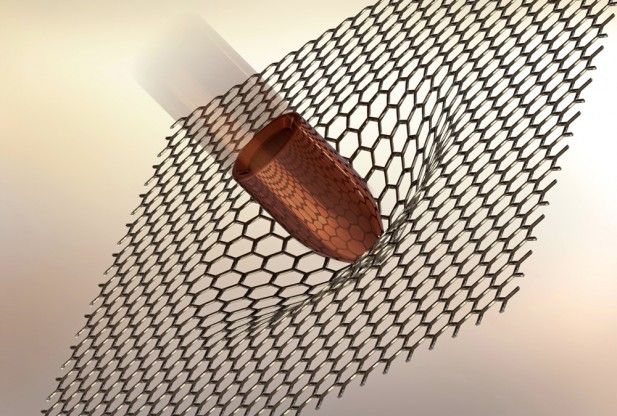GPs urged to double cancer referrals in NHS guidelines
GPs told to speed up referrals of patients who may have cancer, as new step-by-step guide aims to ensure fewer cases are missed

The new draft guidance from the National Institute for Care and Health Excellence (Nice) comes as figures show that for the third quarter running, the health service has missed waiting targets on cancer treatment.
Latest quarterly statistics disclose that more than 5,500 patients waited more than two months to start treatment, as the target to start treating 85 per cent of cases within 62 days was missed.
Nice said it was preparing the new advice – a 133 page step-by-step guide for GPs – because delays spotting early signs and symptoms of cancer “could be costing the lives of thousands of people” in England and Wales each year.
Earlier this week, the Health Secretary said the UK needed to do far more to speed up diagnosis, after years “lagging at the bottom” of European survival league tables.
The guidance says that patients with some common symptoms should be referred for tests within as little as 48 hours.
Such cases include any child or adult complaining to their GP of persistent fatigue, who should be offered a full blood count to assess for leukaemia, the draft advice says.
Current NHS targets say cases of suspected cancer should be referred for tests within two weeks.
Last year data comparing thousands of GP practices in England found that 59 per cent of surgeries referred less than half of patients who went on to be diagnosed with cancer within that timescale.
The new advice says GPs should consider referring children with a palpable abdominal mass to specialists within 48 hours, in case of the aggressive cancer neuroblastoma or a type of kidney cancer.
It also says all current or former smokers with an unexplained cough should be referred for chest X-rays.
Yesterday Jeremy Hunt said far more needed to be done to speed up diagnosis of cancer, as he announced plans to publish survival rates for every hospital.
He said: “We have been lagging at the bottom of European survival for many years despite having some of the best surgeons in the NHS,” he said. “A lot of this is about early diagnosis, and also about the safest treatments,” he said.
Professor Mark Baker, NICE’s clinical practice director, said the advice aimed to “make things as simple as possible for GPs to consider the possibility of cancer and refer people to the right service at the right time.”
He said the detailed checklist had been drawn up because it was unrealistic to expect GPs to recognise every single sign and symptom of disease.
Lynda Thomas, chief executive at Macmillan Cancer Support, said worsening delays for treatment were becoming a “fundamental problem” for the NHS, while delays in diagnosis were leaving a “dark cloud” hanging over too many of those who feared cancer.
Research shows survival rates for almost all common cancers are worse in Britain than the European average.
Last year a study of more than 29 countries compared five year survival for stomach, colon, rectal, lung, melanoma skin, breast, ovarian, prostate, and kidney cancers as well as the blood cancer non-Hodgkin lymphoma. It found that only for skin cancer, was survival in this country better than the EU average.
Anna Bradley, chairman of Healthwatch England, said far too many patients who ended up being diagnosed with cancer were being forced to visit GPs repeatedly before being referred to specialists.
“At the moment patients are on average having to visit their GP at least three times with suspected symptoms before being referred,” she said.
Dr Maureen Baker, Chairman of the Royal College of GPs, said the new support from Nice was welcomed, but said identifying possible cancer cases was difficult, and called for more investment in testing.
“When you consider that as well as being rare, many potential symptoms of cancer could be confused with other conditions that GPs see every day, GPs are doing a very good job of appropriately referring our patients that we suspect of having cancer,” she said.
Written Comments
EDITOR'S PICK
 Macau's casino revenue falls further
Macau's casino revenue falls further Graphene could offer better solution for bullet proof jackets
Graphene could offer better solution for bullet proof jackets Brent crude drops below $70 for first time in 4 yrs, ruble in new historic
Brent crude drops below $70 for first time in 4 yrs, ruble in new historic  Russia not planning to reduce oil production – Deputy PM
Russia not planning to reduce oil production – Deputy PM Ethiopia, Icelander firm negotiate geothermal power generation
Ethiopia, Icelander firm negotiate geothermal power generation Inflation in Euro area slows in November
Inflation in Euro area slows in November Turkey's November inflation may increase by 0.26 pct
Turkey's November inflation may increase by 0.26 pct Turkey: Treasury to repay 33B liras debt by Feb. 2015
Turkey: Treasury to repay 33B liras debt by Feb. 2015
Featured Videos
Recently Added News
- A 'super-Earth' transiting a sunlike star is spotted by a telescope on Earth for the first time-
- Breast Cancer Vaccine Shows Promise in Slowing Progress
- The Administrative Court Rejects Marzouki Appeals
- Macau's casino revenue falls further
- Painful story of mammals
- Gas discount herald by Putin!
- James Watson's Nobel prize for DNA discovery up for auction
- Google Glass Deal Thrusts Intel Deeper Into Wearable Tech






 BMW 7-Series 2015-2016
BMW 7-Series 2015-2016 2015 BMW 3 Series Plug-In Hybrid
2015 BMW 3 Series Plug-In Hybrid BMW 535d Diesel
BMW 535d Diesel Woodland Park Zoo to phase out elephants, move 2 animals
Woodland Park Zoo to phase out elephants, move 2 animals Rosie Huntington-Whiteley me fustanin e Rihannës në Malibu
Rosie Huntington-Whiteley me fustanin e Rihannës në Malibu Katerina Netolicka found dead in her bath in Czech Republic
Katerina Netolicka found dead in her bath in Czech Republic